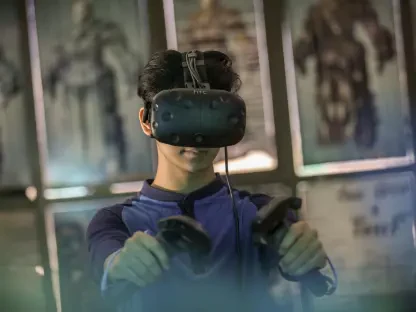I’m thrilled to sit down with Camille Faivre, a renowned education expert with a deep focus on education management. In the evolving post-pandemic world, Camille has been at the forefront of helping institutions design and implement innovative open and e-learning programs. Today, we’ll dive into her insights on integrating technology, particularly artificial intelligence, into educational settings. Our conversation explores how AI can support emotional well-being, enhance academic and career planning, and empower educators to meet diverse student needs, all while navigating the challenges and opportunities of this rapidly changing landscape.
How did your journey in education management lead you to explore the potential of AI in schools?
My journey in education management has always been about finding ways to improve access and outcomes for students. When the pandemic hit, it exposed so many gaps in how we deliver education, especially in terms of scalability and personalization. I started looking into AI as a tool to bridge those gaps, particularly for remote and hybrid learning environments. It wasn’t just about keeping up with tech trends; it was about solving real problems—like how to support students emotionally and academically when resources are stretched thin. My curiosity about AI grew from seeing its potential to extend the reach of educators and create more tailored learning experiences.
What excites you most about the role AI can play in supporting students’ emotional well-being?
I’m most excited about AI’s ability to provide immediate, accessible support for students who might otherwise slip through the cracks. With high student-to-counselor ratios, it’s impossible for staff to be everywhere at once. AI tools, like chatbots designed for emotional support, can offer a safe space for kids to express themselves, whether they’re dealing with friendship issues or bigger personal challenges. What’s powerful is that these tools don’t replace human connection but help prioritize who needs urgent attention. I’ve seen firsthand how this can build resilience in students by giving them a way to process emotions in real time.
Can you share a story of how AI has made a tangible difference in a student’s academic planning or career exploration?
Absolutely. One story that stands out is of a middle school student who had a vague idea of becoming a doctor but hadn’t thought much beyond that. Using an AI chatbot, we guided her to explore her interests in helping others and her love for science in a deeper way. The tool suggested paths like biomedical research and public health advocacy, which she hadn’t considered before. She got so inspired that she started researching these fields on her own and even joined a science club. It showed me how AI can expand a student’s horizon by focusing on their passions rather than just job titles, and it challenges preconceived notions about what they can achieve.
In what ways do you think AI can transform academic support, especially in virtual or hybrid learning environments?
AI has immense potential to transform academic support by personalizing guidance at scale, which is crucial in virtual or hybrid settings where students often feel disconnected. For instance, AI tools can help students map out their courses for graduation by aligning their schedules with district requirements and linking them to relevant resources. This reduces the burden on counselors for routine advising and frees them up for more meaningful interactions. I’ve seen these tools boost students’ confidence in managing their academic paths because they feel more in control and supported, even when they’re learning from home.
How do you address concerns from educators who worry that AI might replace the human element in education?
I understand those concerns completely—education is built on relationships, and nothing can replace the empathy and understanding of a teacher or counselor. I always emphasize that AI isn’t about replacement; it’s about enhancement. It’s a tool to handle repetitive tasks or provide initial support, so educators can focus on the deeply human aspects of their work, like mentoring and fostering trust. When used thoughtfully, AI extends our capacity to connect with more students in meaningful ways. It’s about staying human while leveraging technology to meet growing demands.
What challenges have you encountered while integrating AI into educational programs, and how did you overcome them?
One major challenge is the skepticism from educators and parents who fear AI might not be safe or could overstep boundaries. There’s also the issue of ensuring equity—making sure all students have access to these tools. To address skepticism, I focus on transparency, showing exactly how AI works, how data is protected, and how it supports rather than replaces staff. For equity, I’ve worked with institutions to secure funding or partnerships to provide devices and internet access. Another hurdle was the learning curve; not everyone is tech-savvy. We overcame this by starting small with user-friendly platforms and offering hands-on training, emphasizing trial and error as part of the process.
What is your forecast for the future of AI in education over the next decade?
I believe AI will become an integral part of education over the next decade, not as a novelty but as a standard tool for personalization and efficiency. We’ll likely see more sophisticated platforms that adapt to individual learning styles and predict student needs before challenges arise. I also expect AI to play a bigger role in mental health support, with tools becoming even more intuitive in detecting emotional cues. However, the key will be balance—ensuring that as AI advances, we keep ethical considerations and human oversight at the forefront. It’s an exciting time, and I think AI will help us prepare students for a world that’s changing faster than ever, equipping them with skills and resilience for the future.









